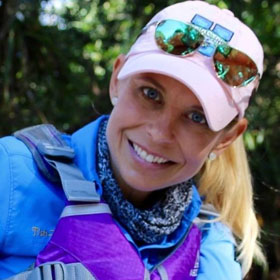Fishing Licenses and Boat Registrations Help With Conservation
By Debbie Hanson
Nov 10, 2014
The card or slip of paper in your wallet issued by your state fish and game agency, the paperwork on your boat, the identification numbers on your hull…
The card or slip of paper in your wallet issued by your state fish and game agency, the paperwork on your boat, the identification numbers on your hull… sure, they are required by law, but what do they mean beyond that? More than you might think. Your fishing license and boat registration not only provide you with the ability to spend quality time on the water with your friends and family, but also help contribute to the preservation of our nation’s waterways and fish populations.
Fishing license fees go towards state fish conservation projects such as:
Fisheries management and fish stocking programs. Hatchery-reared fish are often used to manage or enhance existing fisheries. Stocking helps to improve fish populations while providing more opportunities for anglers to experience the enjoyment of catching a fish. Fish used in stocking programs come from fish hatcheries, which are either federal or state-run facilities that spawn and rear fish in a controlled environment.
Habitat development and protection. In order for fish to live and thrive in a particular body of water, they require the right water temperature, oxygen level, food sources and cover. For example, funds may be required for building artificial reefs that will attract and provide homes for both freshwater and saltwater fish.
Fish conservation License fees also fund fish conservation projects or programs that pertain to topics such as proper catch and release, species identification, and the importance of fishing regulations. A state agency representative or fisheries biologist can often be found at fishing seminars, boat shows and marine industry conferences educating the public about these types of subjects.
Boat registration fees may be applied to the following waterway conservation projects:
Improvement and maintenance of public boat ramps and public piers. Without safe places to launch and dock, boat owners would have limited access to our waterways. Funding for materials and labor is required to maintain and improve state amenities such as boat ramps and piers.
Waterway clean-up efforts. Waterway clean up projects are important in preventing navigation hazards and maintaining clean waterways that protect water recreation and our local economies.
Education on pollution prevention and aquatic hitchhikers. Public education is required when it comes to protecting our water resources. Boat owners and anglers should understand how to prevent pollution from fuels, plastic, fishing lines, etc. There are other important things that boaters can do, such as washing and drying off the boat before leaving the boat ramp, to help prevent the spread of invasive plants, animals and other organisms.
Aside from the purchase of fishing licenses and payment for your boat registration, you can help with conservation efforts in your area through a variety of volunteer opportunities.
Fishing license fees go towards state fish conservation projects such as:
Fisheries management and fish stocking programs. Hatchery-reared fish are often used to manage or enhance existing fisheries. Stocking helps to improve fish populations while providing more opportunities for anglers to experience the enjoyment of catching a fish. Fish used in stocking programs come from fish hatcheries, which are either federal or state-run facilities that spawn and rear fish in a controlled environment.
Habitat development and protection. In order for fish to live and thrive in a particular body of water, they require the right water temperature, oxygen level, food sources and cover. For example, funds may be required for building artificial reefs that will attract and provide homes for both freshwater and saltwater fish.
Fish conservation License fees also fund fish conservation projects or programs that pertain to topics such as proper catch and release, species identification, and the importance of fishing regulations. A state agency representative or fisheries biologist can often be found at fishing seminars, boat shows and marine industry conferences educating the public about these types of subjects.
Boat registration fees may be applied to the following waterway conservation projects:
Improvement and maintenance of public boat ramps and public piers. Without safe places to launch and dock, boat owners would have limited access to our waterways. Funding for materials and labor is required to maintain and improve state amenities such as boat ramps and piers.
Waterway clean-up efforts. Waterway clean up projects are important in preventing navigation hazards and maintaining clean waterways that protect water recreation and our local economies.
Education on pollution prevention and aquatic hitchhikers. Public education is required when it comes to protecting our water resources. Boat owners and anglers should understand how to prevent pollution from fuels, plastic, fishing lines, etc. There are other important things that boaters can do, such as washing and drying off the boat before leaving the boat ramp, to help prevent the spread of invasive plants, animals and other organisms.
Aside from the purchase of fishing licenses and payment for your boat registration, you can help with conservation efforts in your area through a variety of volunteer opportunities.
Popular Posts









